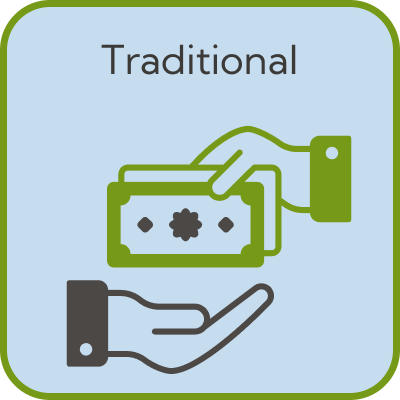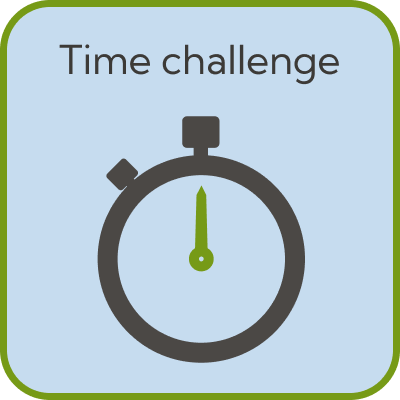Fundraise by participating in Self-organised juggling 1,000 times challenge!
Self-organised juggling 1,000 times challenge
Imagine yourself mastering the rhythmic art of juggling, all for a great cause. In the "Self-organized Juggling 1,000 Times Challenge," you can set yourself the goal of successfully juggling any item of your choice – whether it's balls, rings, or clubs – for 1,000 consecutive throws. This challenge not only tests your skill and endurance but also serves as an exciting way to engage supporters in your fundraising efforts.
This event is an excellent choice for charitable fundraising because it combines a showcase of personal skill with the potential for high audience engagement. Juggling is visually appealing and can be streamed online to reach a wide audience, increasing the visibility of your cause. The nature of the challenge – striving for a high number of consecutive successes – is bound to keep viewers hooked, encouraging them to donate as you progress towards your goal.
To organize this event successfully, start by selecting your juggling items and practicing diligently to build your confidence and skill. Choose a comfortable, safe environment for your challenge, ensuring there's enough space and minimal distractions. Set a date for your event, allowing ample time for promotion. Utilize social media platforms to share your training progress and event details, drumming up interest and support. Be transparent about the cause you are supporting and how the donations will be utilized, as this will help to foster trust and encourage more contributions.
The most suitable Sponsivity challenge types for this event would be the "Time Challenge" and the "Wager Challenge." The Time Challenge model fits perfectly as you can set a specific duration within which you aim to complete your 1,000 juggles, challenging you to push your limits while sponsors pledge based on your performance. Meanwhile, the Wager Challenge model introduces an exciting twist – you could pledge to increase the complexity of your juggling (adding more items, for example) if a certain amount of money is raised by the halfway point. Both models amplify donor engagement by linking their contributions directly to your performance, making every throw count even more towards your fundraising goals.
Remember, the key to a successful juggling challenge for charity is to maintain your enthusiasm and interact with your audience throughout the event. Keep them updated with live counts, share your feelings, and express gratitude for their support, making it a memorable and successful fundraising experience for everyone involved.

Sponsivity offers you several ways to raise for Self-organised juggling 1,000 times challenge


💪 Physical Endurance – A Test of Strength & Stamina for Charity
Physical endurance challenges are some of the most demanding and rewarding ways to raise money for charity. These events push fundraisers to their limits, whether through long-distance running, cycling, swimming, or multi-hour challenges, making them highly compelling for donors. The harder the challenge, the more supporters are inspired to give.
Why Physical Endurance Works for Fundraising:
- High Engagement: Donors love to support fundraisers who commit to extreme endurance challenges, seeing their dedication as a strong reason to give.
- Scalable & Inclusive: Endurance events can range from personal step challenges to Ironman triathlons, making them accessible for all fitness levels.
- Long-Term Fundraising Potential: The extended training and preparation period allow fundraisers to build momentum and keep donors engaged.
- Great for Time & Distance Challenges: Fundraisers can challenge themselves to beat a time, achieve a distance, or push beyond their limits for charity.
Examples of Physical Endurance-Based Fundraisers:
- Marathon or Ultra Run: “Help me raise £2,000 as I take on my first 100K ultra-marathon!”
- Long-Distance Cycle Challenge: “I’m cycling 1,000 miles across the UK for charity—sponsor me per mile!”
- Extreme Fitness Challenge: “I’m doing 24 hours of non-stop exercise—every donation pushes me further!”
Physical endurance fundraisers inspire, challenge, and motivate, creating an unforgettable experience for participants and a powerful reason for supporters to donate.
Set bespoke rewards that suit physical endurance
- Playlist pick - any song of your choice repeated 3 times on my playlist!
- Photo eating your chosen race snack (max 50g!)
- 20 press-ups after the finishline
🧠 Mental Challenge – Pushing Limits for a Good Cause
Mental challenges test focus, resilience, and determination, making them a unique and engaging way to fundraise. These challenges often involve problem-solving, endurance under pressure, or personal restrictions, such as memory feats, puzzle marathons, or digital detoxes. Fundraising through mental challenges allows participants to showcase their mental strength and discipline, inspiring supporters to donate.
Why Mental Challenges Work for Fundraising:
- Highly Inclusive: Unlike physical challenges, mental challenges can be attempted by anyone, regardless of fitness level.
- Great for Social Engagement: Challenges like chess marathons, escape room events, or language-learning goals are easy to share and track online.
- Endurance & Dedication: Tasks that test patience and willpower—like 24-hour challenges—demonstrate commitment, motivating donors to give.
- Unique & Entertaining: Creative challenges stand out, making them highly shareable on social media and drawing attention to the cause.
Examples of Mental Challenge-Based Fundraisers:
- Memory Challenge: “I’m memorizing 500 digits of Pi—sponsor me to support dementia research!”
- Endurance Puzzle Challenge: “Help me complete 10,000 Sudoku puzzles in a month for charity!”
- No-Talking or Digital Detox Challenge: “Support my 48-hour silent retreat—every donation helps my cause!”
Mental challenges showcase creativity, discipline, and perseverance, making them a fun and inspiring way to raise money while pushing personal limits.
Set bespoke rewards that suit mental challenge
- Join me in my challenge for 1 day
- Get defeated by me at chess online during the challenge
📅 Self-Organised – Fundraising on Your Terms
Self-organised fundraising challenges put you in control, allowing fundraisers to create a challenge that’s unique, personal, and tailored to their passions. Unlike organised events, self-organised challenges offer complete flexibility—whether it’s a solo endurance test, a creative personal challenge, or a community-driven activity.
Why Self-Organised Challenges Work for Fundraising:
- Full Flexibility: Choose the activity, location, and timing that works best for you, making fundraising accessible and achievable.
- Personal & Meaningful: Custom challenges allow fundraisers to connect with their audience by choosing something significant to them.
- Low-Cost & Inclusive: Without the need for event entry fees or logistics, anyone can participate, making it easy to involve family, friends, or colleagues.
- Perfect for Challenge Chain & Wager Models: Self-organised challenges can inspire others to join in, spreading the impact through viral nominations.
Examples of Self-Organised Fundraisers:
- Personal Running Challenge: “I’ll run 5K every day for a month—support my journey!”
- DIY Fitness Marathon: “I’m doing 1,000 push-ups in a day—every donation pushes me further!”
- Creative Challenge: “I’ll cycle across the country dressed as a superhero—help me hit my fundraising goal!”
Self-organised challenges allow fundraisers to turn their creativity, passions, and dedication into real impact, making it a powerful and accessible way to raise money for a cause.
Set bespoke rewards that suit self-organised event
- Rename the challenge in your honour
- Bring home-baked cookies to the finishline